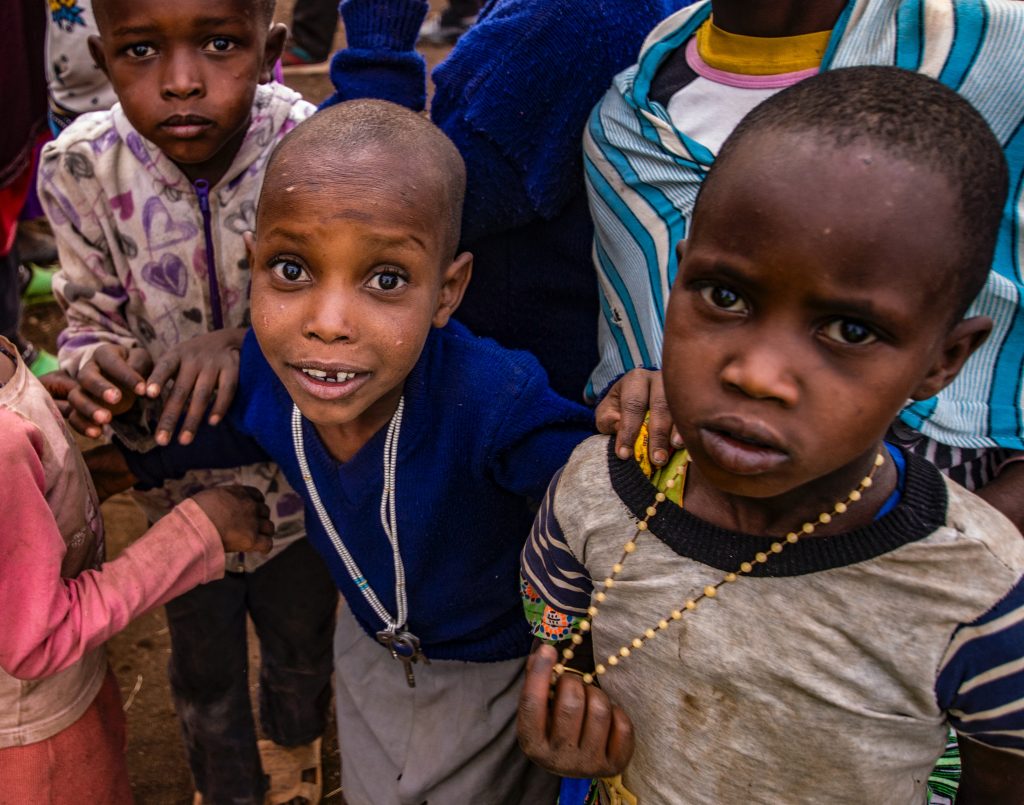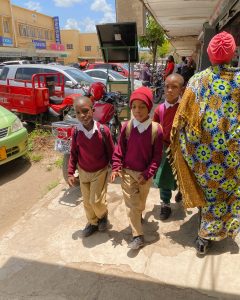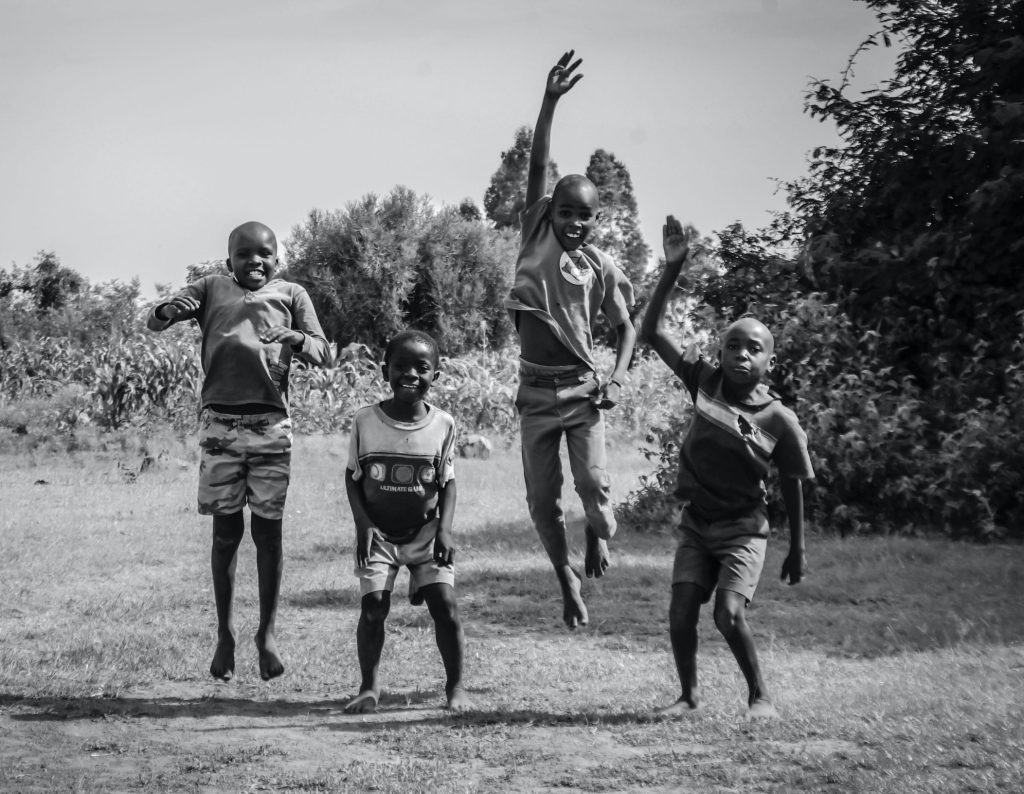Tell us about yourself, Daveon! We’d love to know about your background, what drew you to teaching abroad, and more.

My name is Daveon Angel Davenport, born and raised in Stockton, California, and I am currently 21 years old. I graduated from Concordia University Portland with two Bachelors; Bachelor of Art in English Language and Literature, and Bachelor of Science in Business Administration and Management. I was able to pursue those degrees due to the large amount of support that greatly fueled the grand ambitions.
The grand ambitions stated earlier is to start a grandiose legacy that will make future generations proud of the lifelong accomplishments. Also to become part of the positive changes across the world by any means necessary, even if it meant that I have to sacrifice the precious time, resources, and body (emotional, physical, and mental conditions).
This inspiration came from the television series that I watched as a kid called ”One Piece”, which visibly showcases the journey of a determined young man who wanted to establish a legacy of becoming the ”King of Pirates” and claiming the most valuable treasures in the world, along with his reliable crew.
Anyways, I was 19 years old upon university graduation. At that time, my mental health was deteriorating rapidly due to the intellectual strain by overloading rigorous academic courses and studying on a mammoth-like scale everyday. This led to neglecting social activities, personal hobbies, beloved friends, and family (which I don’t truly recommend, by the way).
I came to the conclusion that a well-deserved break was required to function normally, so that is how the missions of teaching and volunteering across the world came into my mind.
Where I started:
I decided to volunteer during the month of December in the Philippines when a typhoon ravaged the eastern provinces and displaced the lives of an uncountable number of people and animals. I probably saved around 100-200 lives with the assistance of locals. Hypothermia became a personal issue later on, as water became cold everywhere (This is an prime example of bodily sacrifice).
After that, I settled in Davao with the reward of $2,000, of which I spent a significant portion for toys and food for children. These children are in poverty level environments, so parents can’t afford nice things for Christmas. The Pandemic shook the world, so I had to return to the United States out of fear. Eventually, I escaped my comfort zone to visit Rwanda during October 2020 because I wanted to teach English and Mathematics in rural areas, while delivering supplies (medical, foodstuff, etc.). Therefore, five hours was spent on teaching, and four hours spent on other missions everyday.
I was loosely affiliated with an independent organization whose goal is to improve the living standards of all Rwandans, and to a lesser extent, Congolese and Burundians. The team and I traveled across many provinces in Rwanda and Northern Burundi, until we received news from someone who said that kidnapping of children and teens are increasingly common in outskirts of Goma and surrounding areas.
Then…
From that story, we heard that rebel forces concentrated in Eastern Congo were utilizing astronomical amounts of disgusting abuses of all manner and form, and this suddenly became the main topic. Children were kidnapped from villages, and kidnapped to work in mines that benefits rebel groups. Majority of the time, these children were neglected, not given food, quality medical care, and tools (they worked with hands, causing injuries and medical issues). Most of them died and the strongest hardly survived. I wasn’t going to stand around to hear all that, so I wanted to volunteer to help those children. Money and possessions were the last things I thought of, and those children became first thoughts of essential priority.
We went from Butare in Rwanda to North Kivu in DRC, then stayed there for 2 weeks on this mission filled with sadness and hardships. Eventually, we saved uncountable numbers of children in mines or working as slaves under rebel groups (60-150 range, but still undetermined). In the process, I lost several people, including a journalist who died from landmine explosive, as I was nearby, resulting in auditory damage that is permanent. These children were taken to safe houses, where they were rehomed, or reintegrated into their society. Most became orphans though, sadly.
I then went back to the United States, to seek treatment for trauma and related psychological conditions from acts of warfare. After that, I decided to move to Tanzania to pursue a teaching career (mainly because I want to enjoy the slow pace), and to strengthen local communities by providing quality education. This can be done by opening academic centers that focuses on the English language as whole.
Would you like to help improve the quality of life for children across the world, like Daveon? Check out some of our courses HERE.

You’re not just a regular run-of-the-mill TEFL teacher; how has being deaf changed your approach to studying for your TEFL qualification, and how you would teach?
Nothing has changed except for auditory problems, in which I have to rely on certain level of decibels for hearing purposes and to read lips for effective communication. Currently, I wear a hearing aid to make up for this weakness. I can hear without it too. Also, I can use earphones regularly as well. Technically, I am not deaf, but more like hard-of-hearing. These words can be used interchangeably, but the definitions of these vocabulary aren’t the same. Masks can be a problem, simply because I can’t hear certain sounds, but I can use context within the sentence to fill in the blank. In Tanzania, no one wear masks regularly (which is actually of benefit to me) except for a certain number of population (think about doctors/medical professionals, airport staff, and others who take Covid-19 seriously).
I highly believe in the Natural Approach because I believe that everyone can learn, unlearn, and relearn. Therefore it is critically important to teach with confidence and to engage with learners. This is to ensure that they are properly receiving information in the classroom with effective utilization of that information, through fluency and accuracy. I would take my time to know students on personal level, and accommodate them greatly, based on their academic and other needs.
Additionally, I believe that students should be thoroughly comfortable in a classroom environment because I want learning to be a rewarding and fun experience for all, regardless of background, race, disability, etc. Because of these beliefs, students usually enjoy being in the classroom with me, as they can depend on me to assist in achieving their academic goals.
You’re from California and currently in Zanzibar. Tell us about your unique journey to Tanzania?
One of the main reasons why I relocated from California to Zanzibar is because of the cheaper cost of living, which is estimated at $550 per month for two people excluding rent. Rent for a 2-4 bedroom house can be anywhere from $800 to $1,300 per year. When comparing the GDP per capita of USA and Tanzania, according to recent statistics (USA, $63,000 and $1,070-$1,800 for Tanzania) it is obvious that an average American could obtain more financial leverage than average Tanzanians. Additionally, life is relaxed here (except for driving), the food is amazing, and activities are endless.
Life in California is becoming expensive, and I was becoming hopeless with the terrible increases. I used to live near the Bay Area, so I would have had to pay with my arms and legs for inadequate sunshine and a terrible standards of living. If I stayed in California longer, I would have to go to the backyard, and… re-examine my life choices, as to why I would stay there and be miserable. The second reason is that I wanted to get married and settle down. Tanzania is truly beautiful and amazing, so why not move there?
What attracted you to teaching English abroad—Did you always know you’d end up in Africa?
Honestly, I wanted to explore the rest of Southeast Asia. Unfortunately, the majority of the region was closed for Americans looking to teach English, therefore I couldn’t have that option. Thailand, Laos, or Indonesia would be very amazing though, so they are definitely on my travel list! Central Asia would be cool, as they are underappreciated, like Kyrgyzstan and Uzbekistan.
I knew that teaching English/Business English would be the greatest gift that I can utilize for the purpose of traveling to different countries with reliable source of income. Eventually, I will branch out to different career options like videography, coding, and data entry.

I ended up in Africa because for the most part, Africa is underappreciated. I knew that I could start a legacy that would benefit me and African communities together, especially East Africa (Rwanda, Burundi, and Tanzania). It was a gamble more than anything, since I had certain traumas. However, I am entirely grateful that these communities kindly embraced me, and made sure that I wasn’t lost.
Africa gave me numerous purposes, more than I can imagine, and there will always be opportunities that I can chase, especially when it comes to teaching English and other subjects. People can argue that I can have similar opportunities in Europe or Asia, but who would embrace me and take care of me the same way that Africans do? Even though I am mixed (I look white), they looked past that and say “Karibu Tanzania. What can I do for you, my brother?”
Tell us three things about your experience in Zanzibar so far that you did not anticipate?
Number 1
First of all, I didn’t anticipate the driving conditions of Zanzibar. The locals are slow drivers, which is “unheard of” for the majority of Africa. So, if anyone has a driver license ready for international standards, then driving is no problem – just be patient. Once out of the main areas, traffic is non-existent and tourists/expats can enjoy themselves easily at their own pace. I don’t have a license at the moment, because I spent my time studying and completing main quests, so I figured “I can get one anytime”.
However, in Dar Es Salaam and other populous cities in Tanzania, traffic and driving conditions can be insane. At that point, always let a local drive. Public transportation is inexpensive, but taxis and motorcycle rides can be negotiated because over-charging is common. Cars drive on the left side of the road, and the wheel is on the right side of the vehicle.
Number 2
Corruption is extremely low in Zanzibar, especially in rural areas. Reporting corruption is always possible, and potential ”criminals” will back off, if threatened to report them for justifiable reasons. It’s best to have a local with you to prevent further nasty situations. Locals are extremely welcoming and friendly, so don’t be shy and reserved. I advise being open-minded, and most likely, they will treat to lunch or something like that.
Crime is low everywhere, but still existent. Police will even point you to the right direction and guide people. Locals love to take pride in their sense of security, so they always lock doors. Electric fences are commonly seen in Zanzibar, to ward off potential robbers (no need for security guards).
Number 3
Lastly, I didn’t anticipate how powerful the USD (United States Dollar) and Euro would be, especially in Mainland Tanzania. Zanzibar is expensive, since it is a tourist destination and imports aren’t friendly to bank accounts. So for the most part, expect to pay high prices for certain items, unlike in Mainland Tanzania.
The Tanzania Shilling is approximately the 6th weakest currency in Africa, so USD and Euro go extremely far. Unlimited mobile internet is $20 per month (get a mobile wi-fi adapter for cheap, flexible internet for this purpose). Housing is ridiculously cheap, around $40-100 per month. Food budget is a variable. Home-cooked meals are common, but expect to pay $80-150 per month for kilos of foodstuff. People with money can afford restaurant quality, but that is less than $10 per person, for huge portions of delicious meals (obviously depending on restaurants). Petrol is $1.13 per liter.
Life here is very easy, but it would be difficult without any knowledge of Kiswahili. This language is understood by everyone in Tanzania and East Africa, in general. Intermediate level is good enough to go anywhere. Just make sure to pay attention to conversations, and be kind. Estimated cost of living for two people is $550 excluding rent if it is paid upfront, so teachers who work online can save a huge portion. Any additional person is $50-150 per month, but this is a variable. These numbers are based on locations, as Mainland Tanzania tend to be cheaper than Zanzibar.
What has been your most rewarding experience as a teacher abroad?
Seeing the children and teens smile, and thrive happily in their environment. Enough said 

Can you share your advice for someone on the fence about whether to teach English abroad or not?
Always research the countries thoroughly before even teaching abroad, because there are pros and cons of every country. I have heard of many stories of disappointment and sadness from teachers!
Connect with people who actually live in the country that you are traveling to, since these people will be your reliable resource for living in that country. Reddit is a good resource, and I swear by this!
Make sure documents, qualifications, paperwork are met for requirements of teaching abroad. Visa is generally required, but respectable employers can provide them for free.
Make sure to go to the bank to get clean USD or Euro before traveling, since most currency exchangers won’t accept terrible or outdated quality bills. $5,000 is the minimum amount to provide for yourself comfortably (There will be times where you will face hardships, so this amount can be a lifesaver), so save up to meet this goal!
Negotiate benefits and salary for the potential career – know your worth! Additionally, compare the salary to the expected cost of living. If there is an option, receive the salary in USD or Euro in place of local currency, especially if they are unstable.
Lastly, it would be beneficial to bring all the important technologies from your country, such as a laptop, a phone (carry a second brand new and unlocked phone), adapters (wi-fi, charger), an external laptop camera if the quality isn’t good enough, etc. The reason is that you most likely won’t find the same technology here. But, if you do, expect to pay high/lower price. Make sure they work properly though. Teachers have the option to work online in addition to working in some countries, to extend financial leverage. Make sure to pay taxes too!
The post Interview with a TEFL Teacher in Africa appeared first on Premier TEFL.




